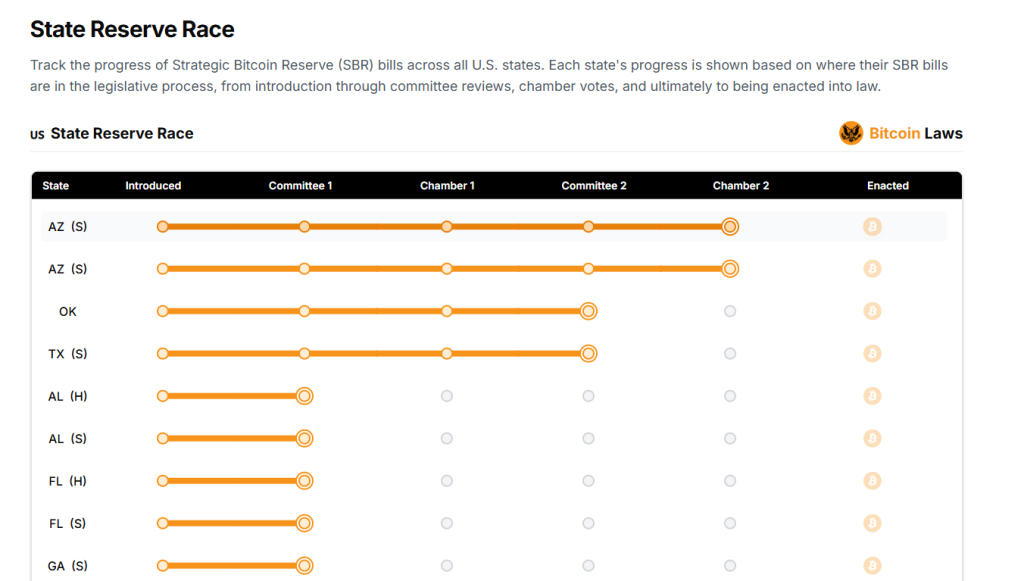- So far, 26 US states have introduced bills aimed at integrating Bitcoin into their financial reserves.
- Arizona leads US states in pushing Bitcoin reserves, nearing approval faster than many others.
- If successful, this could set the trend for other states and mark a new era of crypto adoption across the country.
There has been a major shift in the US financial landscape lately. So far, 26 states have introduced bills aimed at making Bitcoin a part of their reserves. While the idea of governments holding Bitcoin was once considered outrageous, the tide appears to be turning.
One of the US states at the forefront of this change is Arizona, which is closer than many of the others to officially make Bitcoin a state-held asset. If successful, this could set the trend for other states and mark a new era of crypto adoption across the country.
The Growing Push for State-Backed Bitcoin Reserves
Bitcoin’s influence in the global financial landscape has been undeniable, especially in the previous year and in this one. Legislators across 26 states are proposing bills that would allow their respective governments to invest in Bitcoin. In some regions, other states are pushing to include additional cryptocurrencies in reserves.
Some of the most recent of these to jump on board include Minnesota and Alabama, both of which have introduced similar bills to integrate Bitcoin into their financial systems. While these proposals are currently facing political and regulatory hurdles, their introduction alone is a huge step towards Bitcoin becoming more recognized as a part of governmental finance.
Minnesota and Alabama’s Strategic Approaches
Minnesota’s Bitcoin Act, introduced by Rep. Bernie Perryman, lets the investment board fund Bitcoin. The bill also includes provisions for Tax incentives on crypto gains and allows state taxes to be paid using cryptocurrency. If passed, this bill could greatly expand Bitcoin’s use cases at the state level, and make Minnesota one of the most crypto-friendly states in the country.
Alabama’s approach, on the other hand, is slightly different. While its bills do not specifically mention Bitcoin, they do mention an investment threshold that (at present), only Bitcoin meets.
The state’s proposed legislation requires that any eligible cryptocurrency for addition to its reserves should have a minimum market cap of $750 billion. According to data from Bitcoin Laws, Arizona’s bill is the closest to passing. This means that it is likely to become the first state to officially integrate Bitcoin into its financial systems.

The implications of this move could have some far-reaching implications. For example, if Arizona succeeds, it could pave the way for other states to follow suit.
Not Everyone Is Onboard
Despite these bills moving along at light-speed, the idea of Bitcoin-backed state reserves is not popular with everyone. Lawmakers are currently divided, especially with support for these initiatives falling along political lines. Some lawmakers see Bitcoin as a hedge against inflation and a valuable long-term investment.
On the other hand, certain decision makers see it as a volatile asset with plenty of risks. For example, several states like Montana, North Dakota, Pennsylvania, South Dakota and Wyoming have already rejected similar proposals. If Arizona’s proposal passes though, it could mark a turning point for Bitcoin into the US financial system.
State-backed Bitcoin reserves could lead to and increase in Bitcoin adoption, more regulatory clarity and even discussions on the Federal level. On the other hand, resistance from lawmakers could mean that the road ahead is still uncertain.